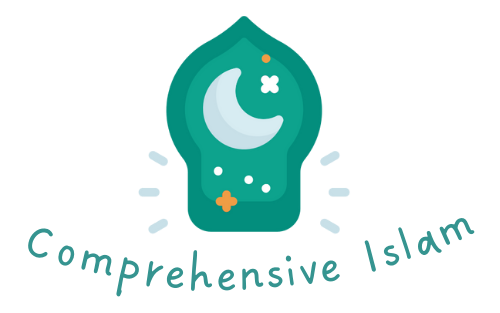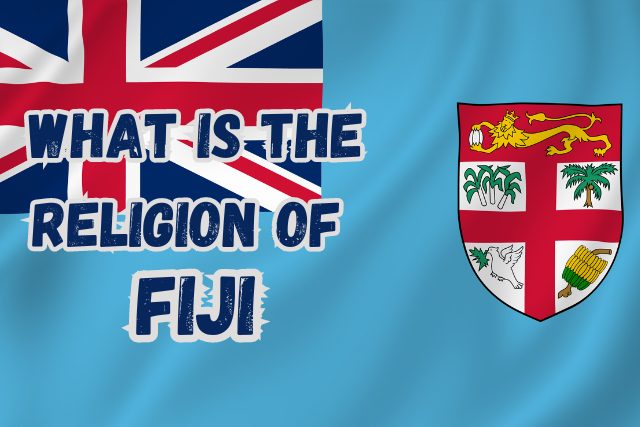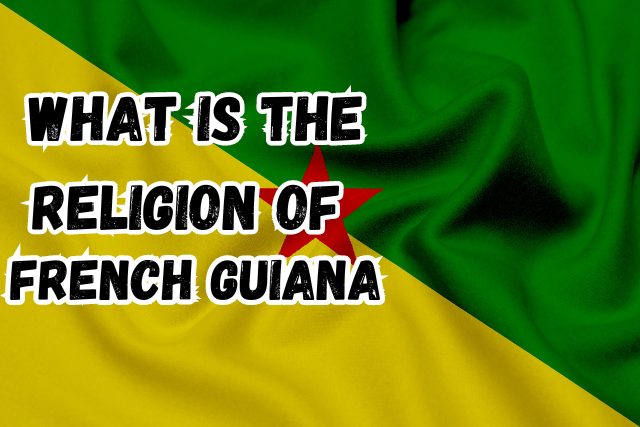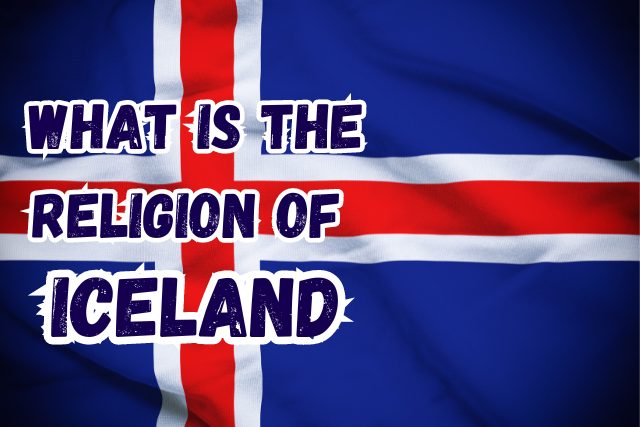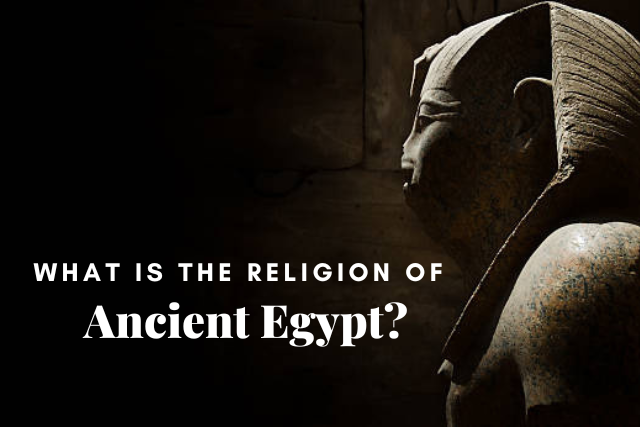What is the Religion of the Dominican Republic
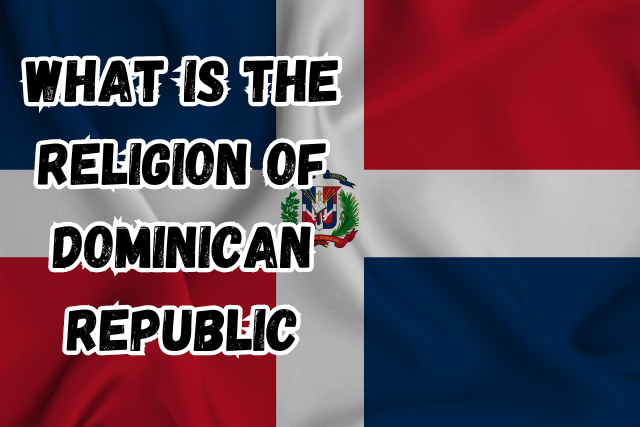
In the sun-kissed expanse of the Dominican Republic, a captivating tapestry of religious diversity unfolds. The country’s spiritual landscape bears the imprints of its historical journey, a complex fusion of indigenous legacies, colonial influences, and contemporary faith expressions.
At first glance, the dominance of Catholicism paints a prominent stroke on the canvas of Dominican beliefs. Rooted in the legacy of Spanish colonization, Catholic traditions have woven themselves into the cultural fabric of the nation, shaping rituals, festivals, and daily life.
Yet, the Dominican Republic’s religious narrative is not confined to a single thread. Protestant denominations, born from waves of evangelization, have carved their presence. Beyond the realm of Christianity, the echoes of indigenous Taino spirituality persist, intertwining with formalized faiths.
Beyond the surface of rituals and religious structures, I’ll uncover the deeper currents that shape the identity and soul of this Caribbean nation. In the blend of old and new, tradition and innovation, the religious story of the Dominican Republic awaits exploration.
Christianity | A Dominant Spiritual Force
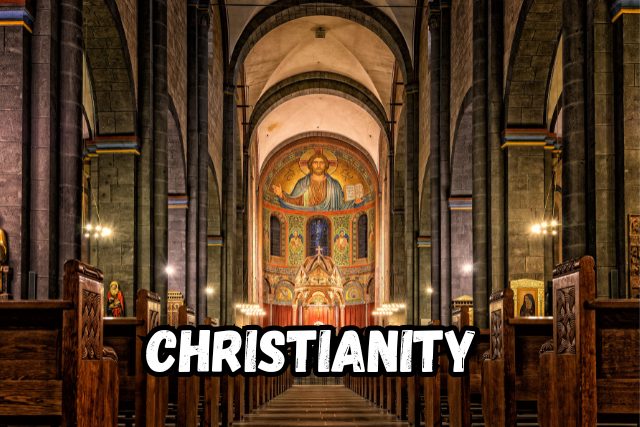
Christianity stands as the predominant religious influence in the Dominican Republic, shaping the beliefs, practices, and cultural expressions of the majority of its population. The Christian faith has deep historical roots in the country, dating back to the period of Spanish colonization.
Christianity holds a significant place in the religious fabric of the Dominican Republic, with the majority of the population identifying as Christians. The two predominant branches of Christianity in the country are Catholicism and various Protestant denominations, each contributing to the rich spiritual landscape.
Catholicism
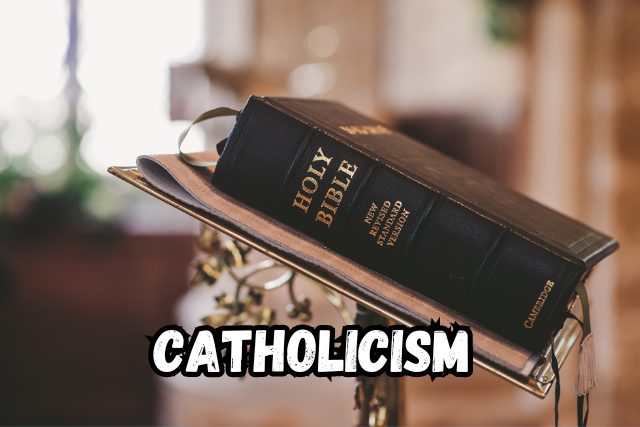
Catholicism has deep historical roots in the Dominican Republic, dating back to the era of Spanish colonization. The arrival of Spanish missionaries brought Catholicism to the indigenous Taino population, shaping the religious identity of the island. Today, the Catholic Church remains a formidable institution, influencing both spiritual and cultural aspects of Dominican life.
Dominican Catholics actively participate in a range of religious traditions and ceremonies. The veneration of saints, processions, and the observance of sacraments are integral to Catholic worship. Semana Santa (Holy Week) holds particular significance, with elaborate processions, reenactments, and religious ceremonies drawing large congregations.
The impact of Catholicism extends beyond religious practices, influencing cultural expressions such as art, music, and folklore. Many Dominican traditions, festivals, and celebrations are imbued with Catholic symbolism and rituals, creating a seamless integration of faith into daily life.
Protestantism

In recent decades, there has been a noticeable surge in Protestantism, contributing to the diversification of Christian denominations in the Dominican Republic. Evangelical and Pentecostal expressions of Protestantism, in particular, have witnessed significant growth. These denominations offer alternative worship styles and theological perspectives, attracting a growing number of followers.
In addition to Catholicism, Protestantism has witnessed substantial growth in the Dominican Republic. Various Protestant denominations, including Pentecostal, Evangelical, and Baptist churches, contribute to the diverse Christian landscape. The Protestant community encompasses a spectrum of worship styles, from charismatic and expressive gatherings to more traditional services.
Evangelical churches, in particular, have experienced significant growth, attracting a sizable following. Their emphasis on personal conversion, dynamic worship, and community engagement resonates with many Dominicans seeking a vibrant and participatory faith experience.
While there have been historical tensions between Catholicism and Protestantism, contemporary Dominican society reflects a more nuanced interfaith dynamic. Many individuals move seamlessly between Catholic and Protestant communities, and there is a growing emphasis on ecumenical dialogue and collaboration.
Afro-Caribbean Religions
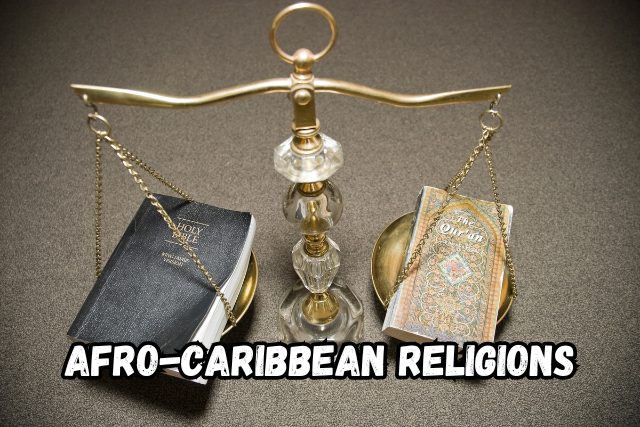
The Dominican Republic is not only a melting pot of Christianity but also embraces the vibrant traditions of Afro-Caribbean religions, which have deep roots in the history and culture of the island. These religions are a testament to the African diaspora’s enduring influence on Dominican spirituality.
Santeria
Santeria, a syncretic religion, has found a home among some Dominicans of African descent. With roots in Yoruba traditions brought by enslaved Africans, Santeria combines elements of Yoruba spirituality with Catholicism. The syncretism is evident in the parallel worship of Orishas (Yoruba deities) and Catholic saints.
Santeria practitioners engage in elaborate rituals and ceremonies to honor the Orishas, often involving music, dance, and offerings. These rituals serve as a means of connecting with divine forces and seeking guidance in various aspects of life.
Vodou
Vodou, with Haitian origins, has also left its imprint on Dominican religious practices. This Afro-Caribbean religion revolves around the veneration of spirits (lwa) and incorporates elements of African, indigenous, and European traditions. Practitioners may seek the assistance of spirits through rituals involving dance, drumming, and symbolic objects.
Vodou is often associated with magical practices aimed at influencing the spiritual and natural realms. While misunderstood by some, these practices play a significant role in the lives of those who adhere to the Vodou tradition.
Afro-Caribbean religions have not only survived but thrived in the Dominican Republic, contributing to the nation’s cultural diversity. The fusion of African spirituality with local traditions has given rise to unique forms of expression in music, dance, and art.
Certain cultural celebrations, such as Carnival, showcase the influence of Afro-Caribbean religions. During Carnival, participants may incorporate elements of Santeria or Vodou into their costumes and performances, celebrating the syncretic nature of Dominican culture.
Islam
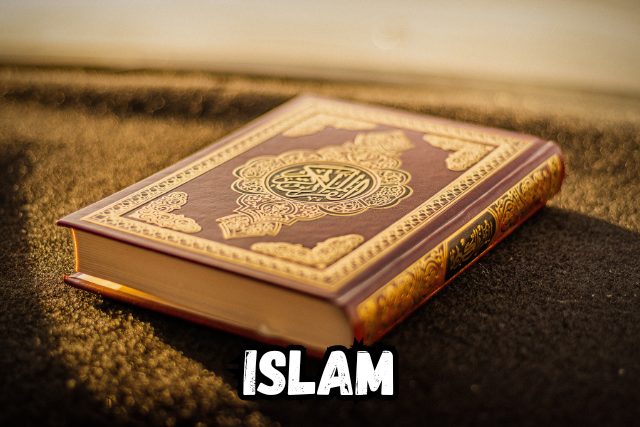
While the Dominican Republic is predominantly a Christian nation, Islam has found a small yet significant place in its religious landscape. Increasing Muslim numbers in the country reflect the country’s increasing cultural and religious diversity.
Islam arrived in the Dominican Republic primarily through migration. Many Muslims are immigrants who come to the country for various reasons, such as work opportunities, education, or seeking refuge. This migration has contributed to the establishment of mosques and Islamic communities in different parts of the nation.
Islamic Practices and Worship
Several mosques have been established across the Dominican Republic, serving as places of worship and community centers for Muslims. These mosques provide a space for prayer, religious education, and communal gatherings.
Muslims in the Dominican Republic adhere to the fundamental tenets of Islam, including the five daily prayers, fasting during the month of Ramadan, charitable giving (zakat), and the pilgrimage to Mecca (Hajj) for those who are able.
Muslims in the Dominican Republic face the challenge of adapting to a predominantly Christian cultural context. This cultural adjustment involves finding a balance between practicing their faith and participating in the broader society.
Moreover, the presence of Islam provides an opportunity for interfaith dialogue and understanding. Interactions between Muslims and people of other faiths contribute to a more diverse and harmonious society, fostering mutual respect and cooperation.
Additionally, Muslims and the broader Dominican community exchange traditions, cuisine, and perspectives because of the presence of Islam.
Islamic communities often engage in educational initiatives to promote understanding of Islam and dispel misconceptions. These efforts contribute to a more informed and tolerant society.
Judaism

Judaism, while a minority religion in the Dominican Republic, has a longstanding and resilient presence that reflects the country’s diversity. Despite being a predominantly Christian nation, the Jewish community has contributed to the cultural and historical tapestry of the Dominican Republic.
Furthermore, the roots of the Jewish community in the Dominican Republic can be traced back to the mid-20th century. During World War II, the country played a role in providing a haven for Jewish refugees fleeing persecution in Europe. This historical connection has left an enduring mark on the Jewish presence in the Dominican Republic.
Synagogues and Community Life
The Jewish community in the Dominican Republic has established synagogues that serve as places of worship, study, and community gatherings. These synagogues provide a sense of belonging for Jewish residents and visitors.
Despite being a small community, Dominican Jews actively engage in community life. Events, celebrations, and educational programs contribute to fostering a sense of identity and continuity within the Jewish community.
Religious Practices and Traditions
The Jewish community observes key festivals such as Passover (Pesach), Hanukkah, Rosh Hashanah, and Yom Kippur. These celebrations are an integral part of maintaining religious and cultural traditions.
Maintaining kosher dietary practices is important for many Jewish individuals in the Dominican Republic. This adherence to dietary laws reflects a commitment to religious principles.
The presence of Judaism in the Dominican Republic contributes to interfaith understanding. Interactions between the Jewish community and the broader society foster mutual respect and tolerance.
Jewish cultural traditions, including music, cuisine, and art, enrich the cultural exchange between the Jewish community and the Dominican society.
Religious Freedom
The Dominican Republic upholds the principle of religious freedom, allowing individuals to practice their faith without fear of persecution. This commitment to religious liberty is enshrined in the nation’s constitution, fostering an environment where diverse religious expressions can coexist harmoniously.
Conclusion
In conclusion, the religious landscape of the Dominican Republic is characterized by a harmonious mosaic of diverse faiths. Christianity, with its Catholic and Protestant branches, forms the spiritual backbone of the nation. Afro-Caribbean religions, Islam, and Judaism contribute to the rich tapestry of religious expressions.
Moreover, the Dominican Republic’s commitment to religious freedom ensures that individuals can embrace and celebrate their faith, fostering an environment of tolerance and coexistence. This religious diversity adds vibrancy to the cultural identity of the nation, reflecting its historical journey and the resilience of its people.
FAQs
What do Dominican people believe in?
Dominican people adhere to various religious beliefs, with the majority practicing Christianity, predominantly Catholicism. However, there is religious diversity, including followers of Protestantism and other Christian denominations.
What is the Religion of the Dominican Republic?
The main religion in Dominica is Christianity, with a significant majority of the population identifying as Catholic. Other Christian denominations, such as Protestantism, also have a presence.
Is Dominica safe for Muslims?
Dominica is generally safe for Muslims and people of all faiths. The nation is known for its religious tolerance and welcoming atmosphere.
Are there Muslims in Dominica?
While the Muslim population in Dominica is relatively small, there are Muslims living in the country. The presence of diverse religious communities contributes to the nation’s multicultural identity.
